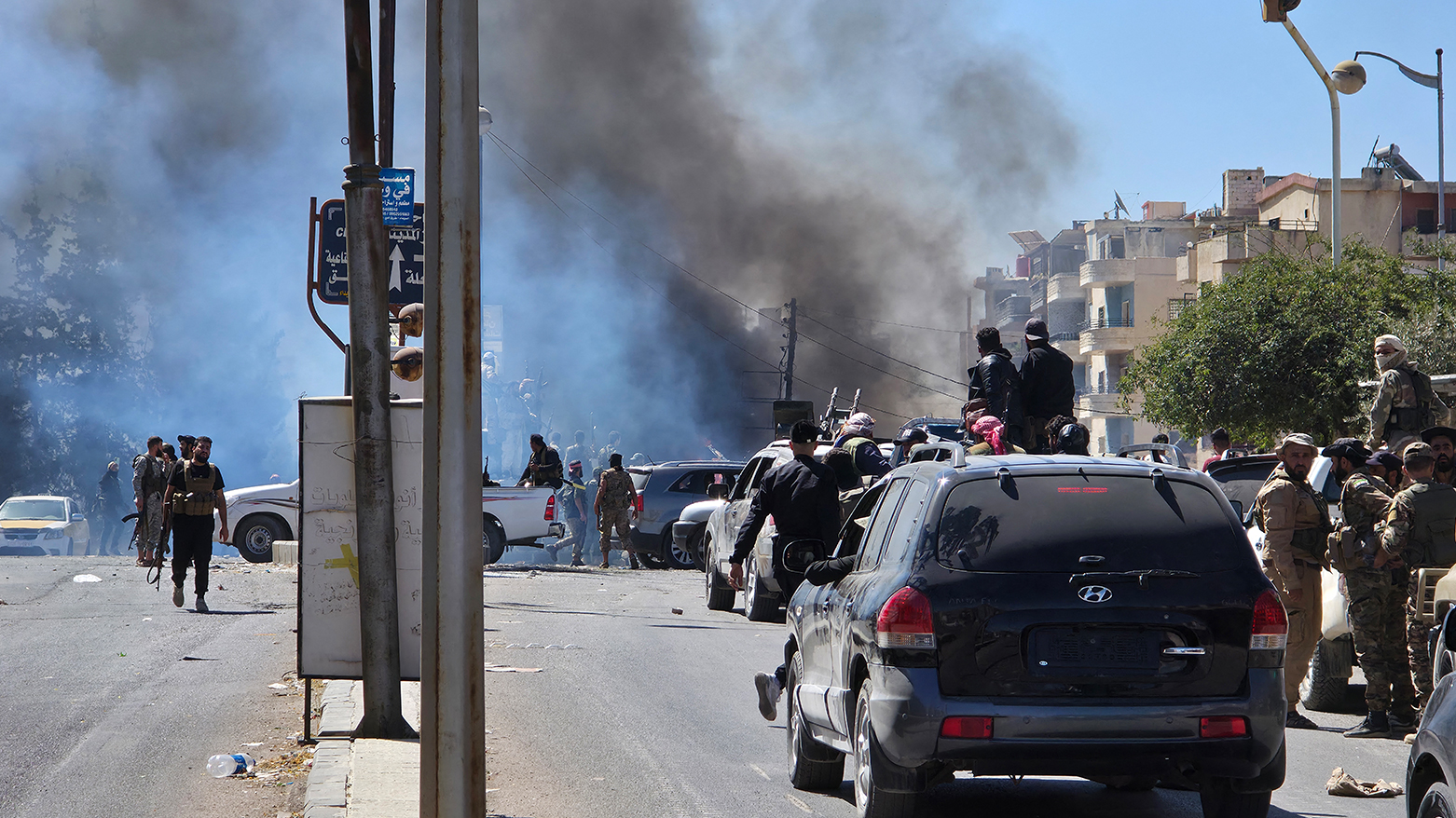Israeli Diaspora Minister Labels Syrian Interim Leader a “Terrorist” Amid Growing Regional Tensions
Israel escalates rhetoric against Syria's interim leader, calling for his elimination while launching strikes to "protect Druze." As Damascus declares a ceasefire, regional tensions flare over Syria's future, with Israel positioning itself as Druze defenders amid ongoing violence.

By Ahora Qadi
ERBIL (Kurdistan24) – Israel’s Minister of Diaspora Affairs, Amichai Chikli, on Tuesday launched a blistering attack on Syria’s interim leader Ahmad al-Sharaa, denouncing him as a “barbaric murderer” and likening Syria’s current regime to “Al-Qaeda in a suit and tie.”
In a strongly worded statement posted on his official X account, Chikli declared: “We must not stand idly by in the face of the Islamist-Nazi terror regime of Al-Qaeda in a suit and tie. Anyone who thinks Ahmad al-Sharaa is a legitimate leader is gravely mistaken — he is a terrorist, a barbaric murderer who should be eliminated without delay.”
Condemnation Over Attacks on Druze and Alawites
Chikli’s remarks come as Israel intensifies its rhetoric and military actions in response to recent violence in southern Syria, particularly in the Druze-majority city of Suwayda. Referring to recent massacres, Chikli added: “We saw the horrific massacre of the Alawites, met with deafening silence from European leaders, and now we are witnessing the slaughter and humiliation of the Druze. The terror regime in Syria must be fought.”
Israeli Military Action in Suwayda
We must not stand idly by in the face of the Islamist-Nazi terror regime of Al-Qaeda in a suit and tie.
— עמיחי שיקלי - Amichai Chikli (@AmichaiChikli) July 15, 2025
Anyone who thinks Ahmad al-Shara is a legitimate leader is gravely mistaken — he is a terrorist, a barbaric murderer who should be eliminated without delay.
We saw the… pic.twitter.com/lSnnE7xge6
The minister’s comments follow a joint statement from Israeli Prime Minister Benjamin Netanyahu and Defense Minister Israel Katz confirming that the Israel Defense Forces (IDF) have launched strikes against Syrian regime forces in Suwayda. The military action, they stated, was intended “to prevent harm to the Druze” and block the Syrian military’s continued deployment in southern Syria, a zone which Israel considers vital to its national security.
According to the IDF, operations are underway to target “regime forces and weapons brought to the Suwayda area,” including strikes on tanks, armored vehicles, and access roads used by Syrian forces.
Israel’s Strategic Justification
The Israeli government cited its “deep fraternal alliance” with the Druze population in Israel, as well as historical and familial connections to the Syrian Druze, as the impetus for its intervention. “We are acting to prevent the Syrian regime from harming them and to ensure the demilitarization of the area adjacent to our border with Syria,” the statement emphasized.
Ceasefire Declared by Damascus
In parallel developments, Syrian Defense Minister General Marhaf Abu Qasra announced a full ceasefire in Suwayda following days of bloody clashes between Druze factions and Bedouin tribes. “We will only respond to sources of fire and will confront any attack by outlaw groups,” Abu Qasra said, adding that Syrian forces will soon hand over control of the city to Internal Security Forces to restore order and allow displaced residents to return.
Escalating War of Words and Fire
Amichai Chikli’s statement marks a significant escalation in Israel’s public stance toward the transitional Syrian leadership, particularly as interim President Ahmad al-Sharaa attempts to stabilize his authority following the fall of Bashar al-Assad. While Damascus has remained publicly silent on Israel’s latest strikes, Chikli’s call for al-Sharaa’s elimination signals growing Israeli hostility toward the emerging Syrian administration.
As military operations and diplomatic tensions continue to escalate, the situation in southern Syria remains highly volatile, with implications reverberating across regional power dynamics and humanitarian conditions on the ground.